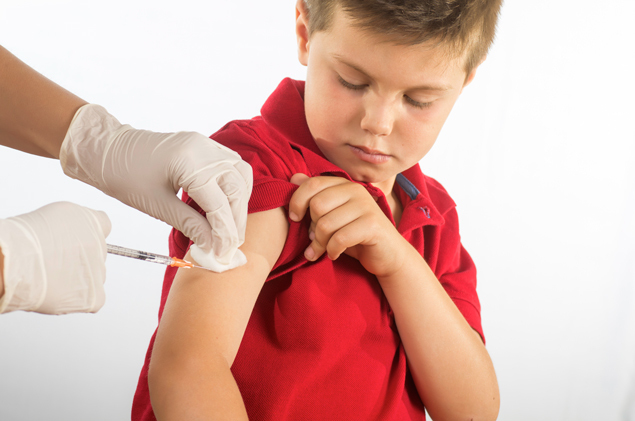To ensure you’re receiving the most up-to-date and accurate information, please choose the correct agency from the homepage. The DHEC website is no longer being updated and will be permanently unavailable Dec. 31, 2024.
Active flu season: A Case Study In How DHEC Works Year Round To Protect S.C.'s Health

By Lilian Peake, MD
Director, Public Health
The current flu season, one of the most active in recent years, has commanded the attention of our entire state and nation. And for good reason: The flu can be a serious threat. This contagious respiratory illness can cause mild to severe illness, with potentially serious complications resulting in hospitalization or death.
 That's why it is so important to have a strong public health system not only working to prevent disease, but also monitoring the health and well-being of the people of South Carolina and responding as situations arise.
That's why it is so important to have a strong public health system not only working to prevent disease, but also monitoring the health and well-being of the people of South Carolina and responding as situations arise.
As South Carolina's lead public health and environmental agency, the S.C. Department of Health and Environmental Control is responsible for protecting and promoting the health of our community. Our public health system must be well prepared to address a variety of health threats to our citizens. These threats may be infectious diseases, such as West Nile virus, whooping cough, and flu, or disasters, such as hurricanes. DHEC employs skilled public health and environmental control professionals who work every day to improve the health of South Carolinians and maintain readiness to respond to any public health threats to our community.
DHEC public health professionals work year round to provide education and surveillance to prepare for seasonal flu as well as the threat of pandemic flu. DHEC staff collaborate with other public health professionals, health care providers and community partners each year, both before and during flu season, to help our state better respond to flu, no matter how severe the season.
Prevention is the first place to start. Getting vaccinated is the best way South Carolinians can prevent the spread of influenza. Yearly vaccination is recommended for everyone 6 months and older. DHEC provides flu vaccination at its health clinics across the state, in schools, and in other community settings. Health care providers, pharmacies and others also provide flu shots. This season DHEC was a partner in a Palmetto Health initiative to provide flu vaccine clinics in churches in the Midlands.
DHEC shares prevention messages and other information on its website and through news releases, interviews, blog posts, social media and public service announcements. This helps keep the public up-to-date on the flu season and inform them of the important steps they can take to protect themselves, their families, and vulnerable members of their community.
Monitoring (or conducting surveillance) of influenza plays an important role in understanding the spread of the flu, the severity of the season and its impact on South Carolina. It helps detect novel influenza strains, measure the effects of influenza, determine where the flu is spreading in the state and the nation, and identify unusual clustering of cases or outbreaks. Detecting flu early in the season provides more opportunity to encourage members of high-risk groups to get vaccinated before the virus becomes widespread.
Certain influenza data are required to be reported to DHEC to allow for monitoring, including confirmed cases, hospitalizations and deaths. These data are used to produce FluWatch, a weekly summary of influenza activity in South Carolina. Outbreaks of flu in schools, child care centers, health care facilities and elsewhere must also be reported, and DHEC provides guidance to help stop the spread of influenza.
DHEC also partners with hospitals to help respond to flu. During this year's active season, hospitals across the state put their medical surge plans into operation to successfully handle the increased number of patients. Working with hospitals and the South Carolina Hospital Association, DHEC facilitated a process in which bed availability and emergency room status were gathered daily. By working together, there was assurance that patients got the care they needed.
Such collaboration supports DHEC's vision of healthy people living in healthy communities. It is good to know that when the public health is threatened, South Carolina is ready to respond.